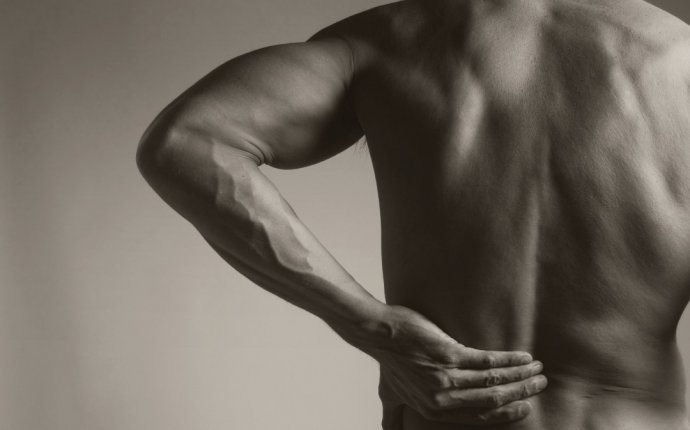
Exercises and stretches for Lower back
 That ache in your low back after sitting at a desk all day isn't in your imagination. Tight muscles can cause decreased flexibility and sometimes pain, making it difficult to get through your day. Muscle tightness can develop after injury, but more commonly, it occurs when our bodies are in one position for long periods of time — such as working at a computer all day.
That ache in your low back after sitting at a desk all day isn't in your imagination. Tight muscles can cause decreased flexibility and sometimes pain, making it difficult to get through your day. Muscle tightness can develop after injury, but more commonly, it occurs when our bodies are in one position for long periods of time — such as working at a computer all day.
Tight muscles can cause you to sit with poor posture, including a rounded low back. Sitting in this posture puts increased pressure on your spine, which can lead to pain. Low back stretches improve flexibility, which might help prevent back pain down the road. Stretch until you feel a strong pulling sensation without pain.
Read more: Stretches for the Lower & Middle Back
Stretching positions can be progressed as you become more flexible. Photo Credit fizkes/iStock/Getty ImagesThe seated chair stretch can easily be performed throughout the workday.
 Choose a chair without wheels or armrests. Sit up straight at the edge of the chair.
Choose a chair without wheels or armrests. Sit up straight at the edge of the chair.
Holding your arms out in front of you, slowly bend forward at your hips until you feel a stretch along your low back. You might need to spread your legs a bit wider, depending on how far you are able to bend. Allow your chin to drop toward your chest.
Hold this position for 20 to 30 seconds, and then slowly sit back up. Repeat this stretch three times.
Low back stretches can be performed virtually anywhere. Photo Credit matthewennisphotography/iStock/Getty ImagesEach side of the low back can be stretched individually with the seated single-side stretch.
Sit on a firm surface with your knees straight and legs spread apart comfortably. Bend your right knee and bring your heel in toward your body.
 Reach toward your left toes with both hands. Reach forward until you feel a stretch along the left side of your low back. If you have very tight hamstrings, you might feel stretching or even pain in the back of your thigh. Bend your left knee slightly to decrease pressure on the hamstrings.
Reach toward your left toes with both hands. Reach forward until you feel a stretch along the left side of your low back. If you have very tight hamstrings, you might feel stretching or even pain in the back of your thigh. Bend your left knee slightly to decrease pressure on the hamstrings.
Hold the stretch for 20 to 30 seconds, then relax. Repeat three times and switch legs to stretch the right side of your low back.
Yoga can improve flexibility in low back muscles. Photo Credit rilueda/iStock/Getty ImagesSeveral yoga poses are effective stretches for improving flexibility in your low back.
The intensity of the cat stretch can be easily adjusted to your current level of flexibility.
 Position yourself on your hands and knees. Your hands should be in line with your shoulders and your knees directly under your hips.
Position yourself on your hands and knees. Your hands should be in line with your shoulders and your knees directly under your hips.
Slowly breathe in and arch your back, allowing your chin to drop down toward your chest. Stop when you feel a strong stretch in your low back.
Exhale slowly. Allow your belly to lower toward the ground and look up toward the ceiling.
Repeat this movement for five slow breaths.
Walk your hands farther forward to increase the intensity of the prayer stretch. Photo Credit jacoblund/iStock/Getty ImagesThe prayer stretch is performed in a kneeling position. Avoid this stretch if you have knee pain.
Kneel on a firm but padded surface, such as a yoga mat. Point your toes so your shins are resting against the ground.
 Sit back on your heels. Bend forward and allow your chest to rest on your thighs.
Sit back on your heels. Bend forward and allow your chest to rest on your thighs.
Place your hands on the ground in front of you, with straight elbows. Walk your fingers forward until you feel a stretch along your low back. Hold for 20-30 seconds and repeat three times.
Walk your arms out at an angle to target the muscles on each side of your low back. Walk you hands forward and to the right to target the left low back muscles and vice versa.
Read more: The Best Yoga Moves for Your Back
Make prone press-ups easier by placing your forearms on the ground instead of your hands. Photo Credit jacoblund/iStock/Getty ImagesProne press-ups improve low back extension, or your ability to bend backward.
Lie on your belly on a firm, padded surface. Bend your elbows and bring your hands underneath your shoulders.
Keep your back relaxed and slowly straighten your elbows as far as possible to lift your chest off the ground. Keep your hips in contact with the ground throughout the movement.









